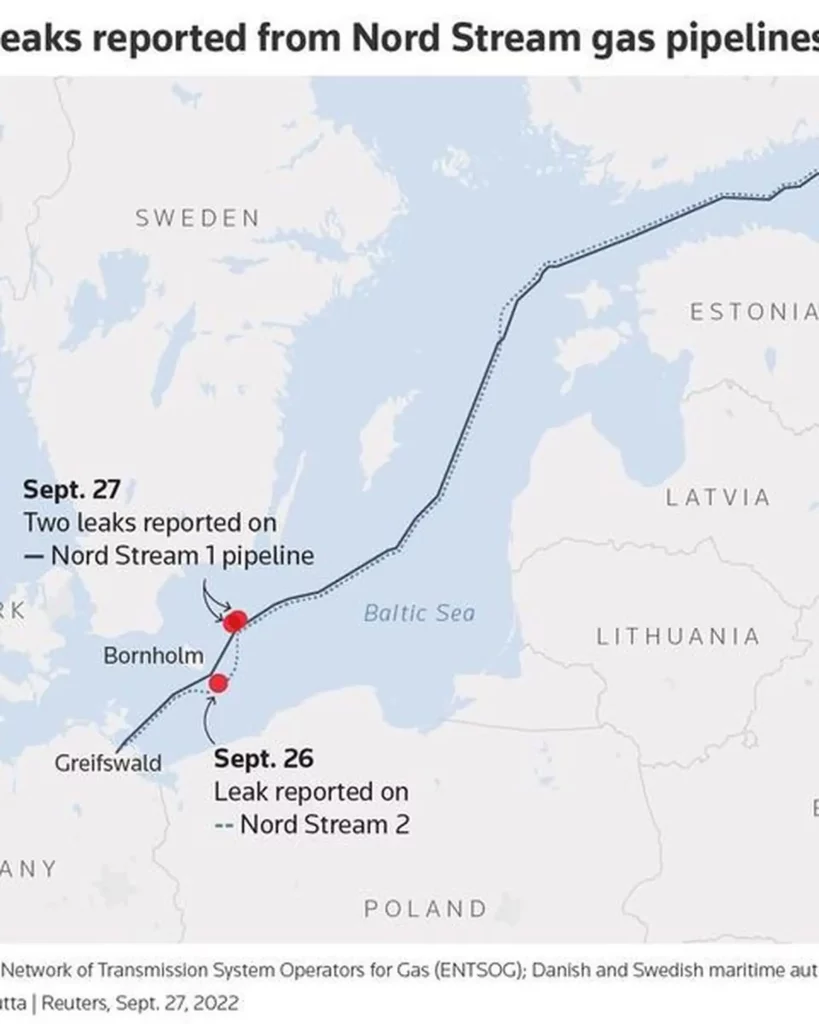Sweden ended its investigation into the 2022 explosions on the Nord Stream pipelines, citing jurisdictional constraints but sharing uncovered evidence with German authorities for continued scrutiny.
The explosions, occurring in September 2022 within the Swedish and Danish economic zones, severely damaged the multi-billion dollar Nord Stream 1 and 2 pipelines, disrupting the transportation of Russian gas to Germany and resulting in substantial methane emissions.
Denmark and Germany have launched separate investigations into the sabotage, with Sweden collaborating by passing on pertinent evidence. The Swedish prosecution authority facilitated the transfer of materials crucial for the German investigation.
While the German Federal Public Prosecutor’s office confirms the ongoing nature of its inquiry, Danish authorities anticipate providing updates on their investigation shortly.
Germany’s report to the U.N. Security Council revealed traces of subsea explosives, adding complexity to the investigation. This finding suggests potential methods used in the sabotage and raises questions regarding the perpetrators’ identities and motivations.
Russia has accused the United States, Britain, and Ukraine of involvement, while Western nations deny any connection to the blasts. Conflicting narratives persist, with some officials citing the presence of Russian military vessels in the area during the incidents.
Kremlin spokesperson Dmitry Peskov expressed Russia’s interest in Germany’s investigative progress, emphasizing the need for transparency in the proceedings and highlighting the significant impact of the sabotage on Russian interests.
The lack of conclusive evidence from either Denmark or Germany leaves the investigation unresolved, raising challenges in determining accountability for one of the most significant acts of infrastructure sabotage in recent history.
With the transfer of evidence to Germany, the Nord Stream pipeline sabotage investigation continues, underscoring the complexities and geopolitical ramifications of the incident.


